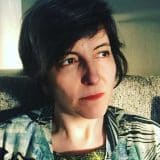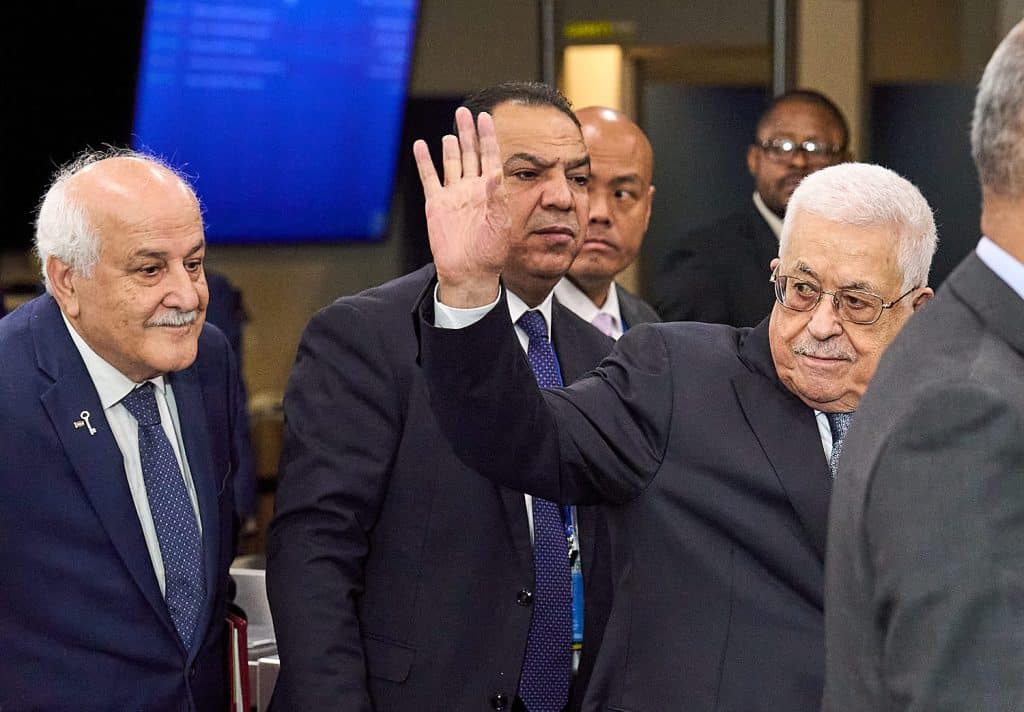
Palestine: ‘We Will Not Leave’
“We will not leave,” Mahmoud Abbas, the 88-year-old president of the state of Palestine, repeated three times in the opening of his General Assembly address, which was met with a distinctly supportive round of applause in a relatively empty hall. A brief demonstration of support in the upper balcony marked Abbas’s closing, with the holders of a small banner shouting “Free Palestine” quickly escorted out by United Nations security.
The tragic events occurring in the Gaza Strip since Hamas’s Oct. 7 attacks on Israeli territory underlie Abbas’s speech this year, echoing what he said at last year’s General Assembly address in many respects. There was the demand for Israel to leave Palestinian land, references to Israeli settler gangs, calls for an international peace conference and for elections to be allowed in East Jerusalem.
But since Oct. 7, tens of thousands of Palestinians have been killed in Gaza by Israeli forces, and Abbas, referring to the near-total destruction of homes and infrastructure, said, “Anybody who goes to Gaza having been there before wouldn’t recognize it.” In addition to noting increasing aggressions by Israel in the occupied West Bank and in Lebanon, Abbas mentioned Aysenur Ezgi Eyg, the Turkish-American activist shot in the head and killed by Israeli forces in the West Bank earlier in September.
“Israel was delusional to think they can get away with their crimes,” Abbas said, reminding the Assembly that there was no statute of limitations. He criticized the United States for obstructing Security Council resolutions on a ceasefire three times. “The US alone said no, the fighting is going to continue.”
He lauded the General Assembly for recently adopting the International Court of Justice’s July 19, 2024 decision to end Israeli occupation in the state of Palestine within a year, adding, “For the first time, there’s a specific timeframe.”
Much of Abbas’s speech was taken up with a detailed list of recommendations for postwar Gaza: A comprehensive ceasefire with “an end to attacks by terrorist settlers in the West Bank”; humanitarian aid; a full Israeli withdrawal from Gaza with no buffer zones or ports commandeered; protection of UNRWA, the UN refugee agency in Palestine; Palestinian control of border crossings in Gaza; and repeating calls for an international peace conference toward a two-state solution.
The list went on, but none of it mentions Hamas and its role after a ceasefire or what control, if any, Abbas would have over the militia’s actions. — MARIA LUISA GAMBALE
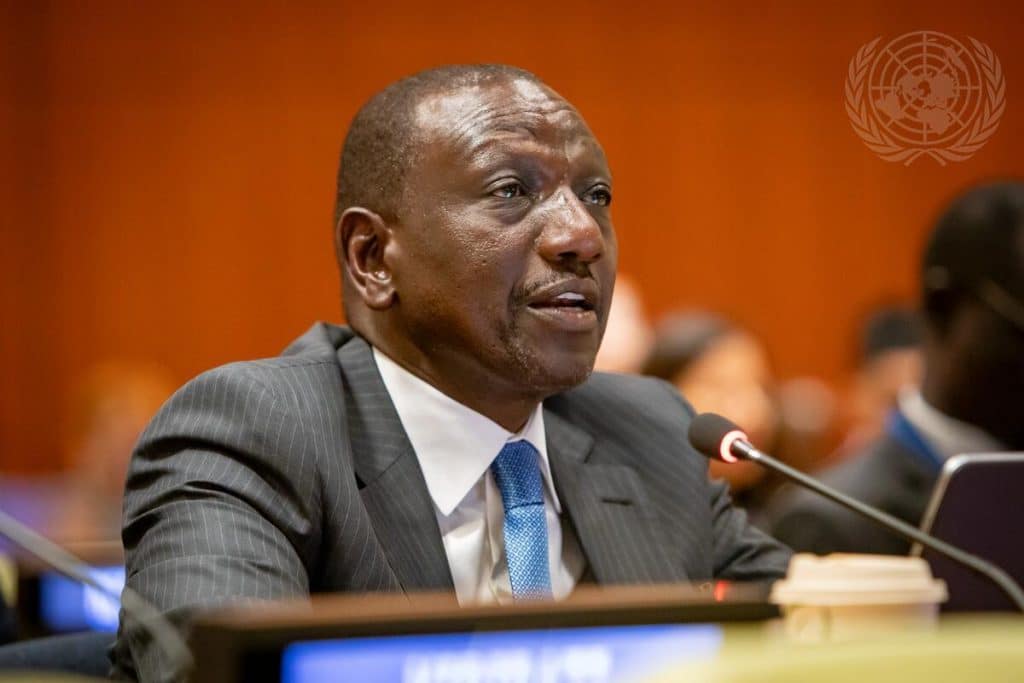



Kenya: ‘What Happened to Humanity?’
Kenyan President William Ruto, 57, spoke powerfully in the General Assembly, highlighting the challenges facing the United Nations, the global repercussions of weakening multilateral institutions and the devastating effect of escalating conflicts on humanity.
Ruto warned that the UN’s ability to maintain peace and security is being eroded by competing interests, divisive narratives and the race to stockpile nuclear weapons. Great-power rivalry is fueling regional competitions and diminishing trust in the multilateral system.
“Regrettably, the world’s most powerful nations have increasingly chosen unilateralism and militarization over dialogue and diplomacy,” he said. “As a result, the capacity of our multilateral institutions to maintain and enforce peace, even in crises with significant regional implications, has been severely undermined. We must rise to the occasion and meet the challenges of our time by reaffirming the core values of the UN Charter.”
Echoing the calls of many fellow African leaders, Ruto pressed for Security Council reform, criticizing the current structure as “dysfunctional, noninclusive, unaccountable, autocratic, and at best, opaque.” He noted that the 54 African countries, representing 1.4 billion people, are excluded from permanent representation, while one nation can hold veto decisions affecting all 193 member states. (The Council veto holders are Britain, China, France, Russia and the United States.)
“In the 21st century, this is simply unacceptable,” Ruto added.
He also advocated for reforming global financial institutions, urging rich nations to take greater responsibility for supporting struggling and emerging economies. “One must wonder what goes through the minds of those who prioritize economic returns over people. Ladies and gentlemen, what really happened to humanity?” he asked.
Kenya used the Assembly setting to highlight its contributions to global stability, including its current efforts in Somalia, South Sudan and Haiti. He pointed to Kenya’s deployment of a special police unit to Haiti to combat gang violence, as endorsed by a Security Council resolution, whose mandate expires at the end of September.
In June, Kenya sent 382 police officers to help stem gang violence and support the Haitian police. However, critics argue that this number is insufficient to tackle the well-armed, entrenched gangs. Ruto, who is his country’s commander in chief of its armed forces, called for increased funding and equipment to ensure the mission’s success, pledging that Kenya would raise its troop deployment to 2,500 by January. (The US is proposing establishing a UN peacekeeping force to absorb the Kenyan security mission. A decision may be acted on the plan by the Council in October.)
“The progress in Haiti so far shows that what was once deemed a ‘mission impossible’ is now a present and undeniable possibility,” Ruto said. — DAMILOLA BANJO
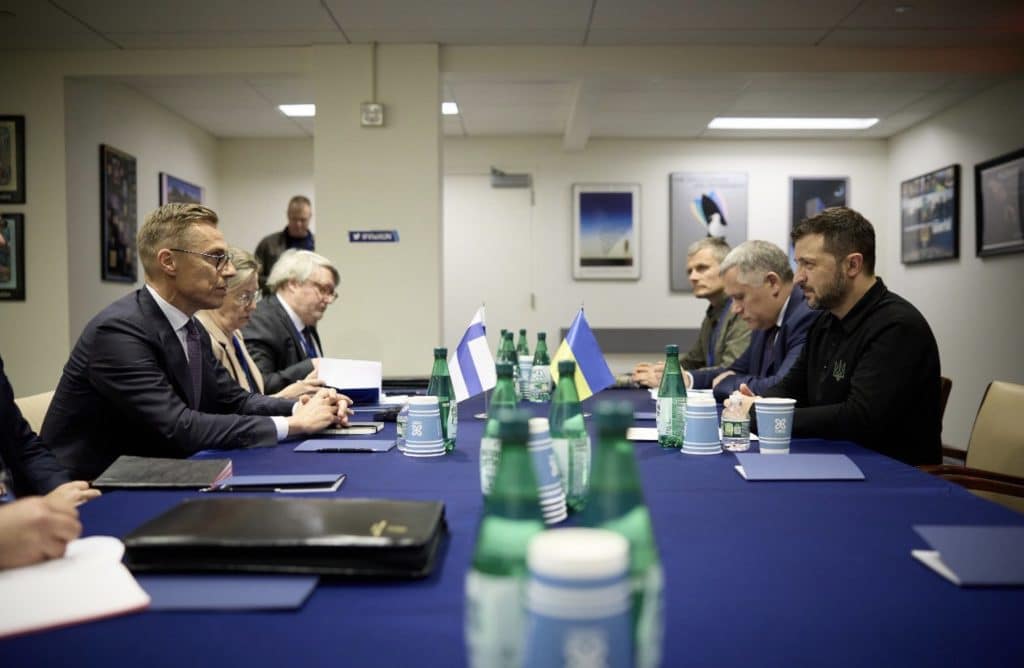



Finland: Rebuking Russia and Remaking the Security Council
Finnish President Alexander Stubb presented sweeping proposals for UN Security Council reform, saying that the number of permanent members should be doubled to 10 and the single-state veto should be abolished.
In a veiled rebuke of his country’s giant neighbor Russia, Stubb, 56, said the voting rights of any Security Council member that violated the UN Charter should be suspended. “We need the United Nations more than ever and without far-reaching reform I’m afraid it will be sidelined,” he said in his address to the General Assembly on Sept. 25.
“It all begins with agency, with a feeling that we all have a say,” he added. “Whether it’s about climate change, technologies, sustainable development or conflict, the same challenge remains: The current international institutions do not reflect global realities. The majority of the world is not properly represented in the global institutions and their interests are not met. This must change.”
Stubb, who took office in March, said it was unacceptable that there was no permanent representation on the Security Council from Africa and Latin America, “and that China alone represents Asia.”
“We therefore propose that the number of permanent members be increased by five,” he said. “Two from Asia, two from Africa and one from Latin America. . . . My part of the world, Europe, should think hard about how to divide its existing two seats.”
France and Britain are the two permanent members from Europe, with the United States, China and Russia the other three in the Council. This structure has remained unchanged since the UN was formed in 1945.
Two weeks ago, the US ambassador to the UN, Linda Thomas-Greenfield, also proposed giving Africa two permanent seats, along with one seat to be rotated among small island developing states. But she said the veto power would be withheld.
Each permanent members has the power to veto Council resolutions. “I fully understand that the veto was necessary in the aftermath of World War II,” Stubb said. “But in today’s world it has too often incapacitated the Security Council and halted decision-making here in New York.”
Without mentioning Russia by name, he noted: “My third proposal is that if a permanent or elected member of the Security Council violates the UN Charter its voting rights should be suspended. This decision should ultimately be taken by the General Assembly. And there should be no room for double standards in the United Nations.”
After Russia’s full invasion of Ukraine in February 2022, Finland — which has an 830-mile (1,340 kilometers) land border with Russia — ended its policy of neutrality and joined the NATO military alliance in April last year.
“Finland condemns, in the strongest possible terms, the Russian aggression in Ukraine. . . . I call on President Putin to end this war, and end it now.”
Stubb, whose country is buying a missile system from Israel, was less forthright about the war in Gaza.
“In Palestine, we must ask ourselves whose interests are driving the war,” he said. “A ceasefire, a two-state solution and regional security arrangements would ensure stability as well as economic and societal development across the region. . . . After the most recent tragedies, there is no other direction but forward and we must find a solution.”
As to the raging civil war in Sudan, Stubb said, “We have failed to apply the principle of African solutions to African problems. Instead, Sudan is becoming an arena for regional and international rivalry.”
He ended his address by quoting the former Finnish President Martti Ahtisaari, who won the Nobel Peace Prize in 2008 and, among other roles, was the UN secretary-general’s special representative to Namibia in 1989-1990: “Peace is a question of will. All conflicts can be settled and there are no excuses for allowing them to be eternal.” — ANTON FERREIRA
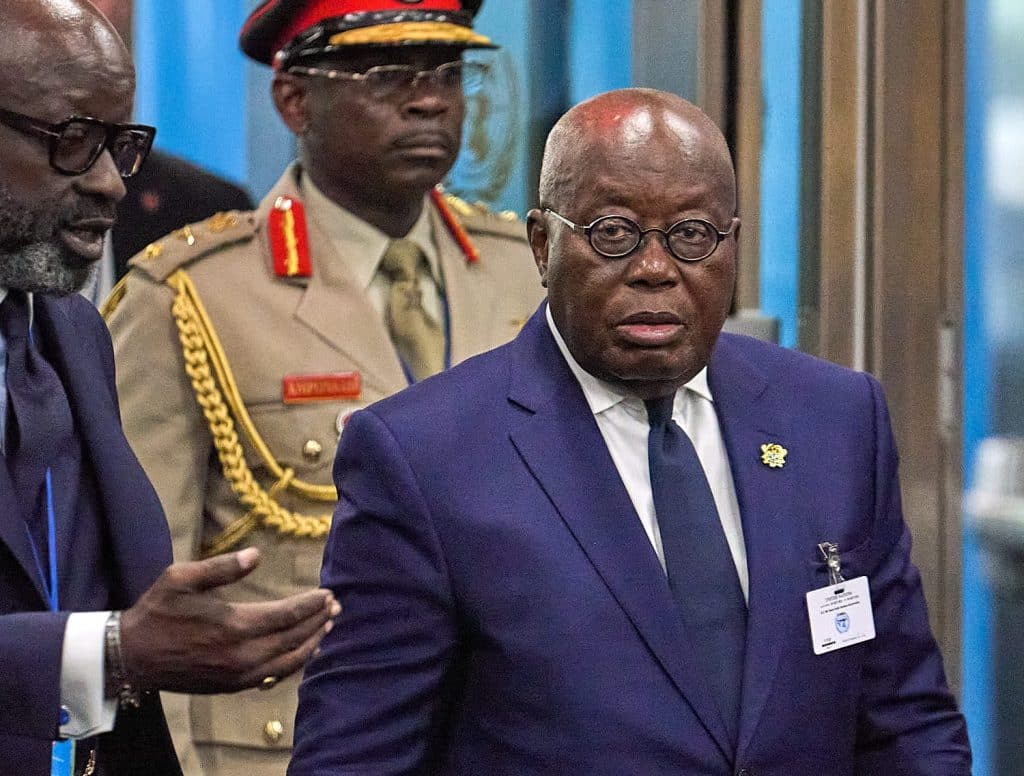



Louder Calls for Slavery Reparations
African and Caribbean leaders are intensifying calls for righting the historical wrongs done to Africa and people of African descent. An event held on the sidelines of the UN General Assembly focusing on a reparative future and Afro-diplomacy featured Ghanaian President Nana Akufo-Addo, 80, and Prime Minister Mia Mottley, 58, of Barbados, among other advocates.
Both leaders’ remarks at the Sept. 24 evening program noted that deep-seated injustices have led to the need for restoration beyond financial compensation and that past wrongs and historical crimes need to be acknowledged and corrected. Akufo-Addo also called for the return of cultural artifacts stolen during colonial rule.
The African Union has declared 2025 the Year of Reparations, reflecting the growing demand for former colonial powers to pay up.
“These dark chapters in human history did not simply end,” Akufo-Addo said. “They set into motion generations of inhumane treatment, inequality, poverty and disenfranchisement. The trans-Atlantic slave trade was an economic transaction which entailed the violent concluding of millions of African lives. . . . Africa herself was drained of some of this vitality.”
For Mottley, Africans and people of African descent experience a double jeopardy. They live on the front line of the global climate crisis, despite Africa having the lowest greenhouse gas emissions among continents, yet gave their “blood, sweat and tears” powering the industrial revolution that caused the crisis.
“The people in Nigeria who faced the floods recently are on the front line as much today as those in West Africa were centuries ago when their families were separated and pulled apart to be able to fuel the labor and the wealth that was to be created in the Americas,” Mottley said.
Establishing the structure of compensation is challenging. Critics say that it will be difficult to implement such a policy and that the economic damages from slavery and colonialism are too complex to assess. Additionally, systemic racism and vested interests in maintaining the status quo present major barriers to achieving reparative justice.
According to international human rights law, reparations may include compensation for any economically measurable damage, provided it is appropriate and proportional to the severity of the violation and the specific circumstances of each case. Assessing the economic damage of historical injustices, such as those stemming from colonialism and enslavement, is also challenging because of the passage of time and identifying both the perpetrators and victims.
Despite the obstacles, the drive for reparations is gaining political traction. Binaifer Nowrojee, president of the Open Society Foundations, which held the Sept. 24 event, said progress is being made. Caricom, the Caribbean regional bloc, is deepening the global reparations dialog across its constituents, for example.
In Colombia, the country has established its first national reparations commission dedicated to repairing the harm of the slave trade and structural racism. In the United States, more than 20 reparations commissions and initiatives have sprung up across the country, reflecting a growing commitment to tackle historic injustices. — DAMILOLA BANJO
PassBlue is a grantee of Open Society Foundations.
Maria Luisa Gambale, a graduate of Harvard University, lives in New York City. In addition to writing, she produces film and media projects and is director of the 2011 film “Sarabah,” about the Senegalese rapper-activist Sister Fa. She has produced and directed video for National Geographic, ABC News, The New York Times and Fusion Network. Gambale’s work in all media can be viewed at www.veradonnafilms.com.



